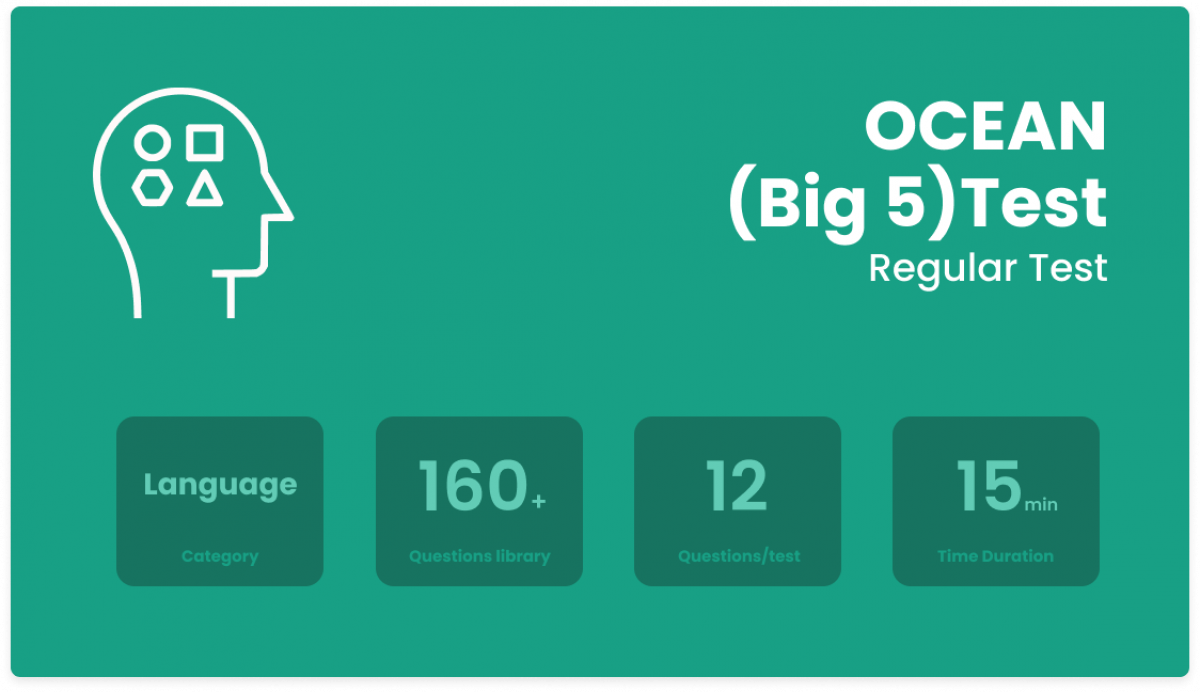Help Desk
OCEAN (Big 5) Test

Big five personality traits - OCEAN
Big 5 OCEAN Traits are a suggested grouping of personality traits into 5 broad categories. This idea is being studied since the 80s and has been tested empirically. This test is usually done as a survey. The word OCEAN is an acronym for
- O – Openness to experience
- C - Conscientiousness
- E – Extraversion
- A – Agreeableness
- N – Neuroticism
The OCEAN personality measure has a notorious history of being associated with the Cambridge Analytica scandal, as they used a variation of this measure in personality profiling.
Basics
This theory is developed from the discovered semantic associations found in personality surveys. For example, people who are more open to experiences are more likely to describe themselves as curious, intellectual, and contemplative. In this way, the theory groups most character traits into 5 overarching traits.
This scale is not in black and white, but rather is on a continuum. For example, Openness ranges from being cautious to being extremely open to experiences.
Guide for using
The best (and probably only place) to use the results of the test is in tailoring the interview for a particular candidate. An additional place you can consider utilizing this test is improving the cultural, temperamental, and personal diversity of your company.
The last thing you must be doing is shortlisting based on one’s result of personality. Personality tests will never be a predictor of job success or even the skills necessary for a job. Research on the usage of personality tests for selecting candidates is shoddy at best. BEWARE OF IMPROPER USAGE
What is OCEAN? - Personality Traits
Openness (O)
Openness to experience is a general appreciation of art, adventure, ideas, imagination, curiosity, and more generally, a variety of experiences. People who have a higher Openness index tend to be intellectually curious, more open to emotion, more adventurous, and more likely to have unconventional ideas and beliefs.
Conscientiousness (C)
Conscientiousness is a measure of a person’s propensity for self-discipline, sense of duty, planning, and striving for achievement. High conscientiousness is associated with focus, industry, and stubbornness. A low measure of conscientiousness is associated with flexibility and spontaneity.
Extraversion (E)
Extraversion is a measure of a person’s tendency to enjoy interacting with people. People with high levels of Extraversion tend to enjoy being with people, are more dominant, and are perceived to be full of energy. People with low levels of extraversion tend to be quiet, reserved, low-key, and socially less involved.
Agreeableness (A)
A person with high levels of agreeableness values getting along with others, being kind, considerate, generous, and trustworthy. People with low levels of agreeableness tend to be perceived as argumentative, competitive, and less kind.
Neuroticism (N)
Neuroticism is a measure of the tendency of a person to experience negative emotions like anger, anxiety, and even depression. This can also be regarded as a measure of emotional instability.
Supported by:
